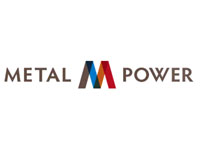The nation recently celebrated the ‘QUALITY WEEK’.
What does Quality mean to the Manufacturing Sector? Here’s what some of the stalwarts from the industry have to say: Editor
Q. How do you define ‘Quality’?
For Metal Power Analytical, Quality is defined by repeatedly and uniformly achieving tangible and quantifiable excellence in all we do. This applies across all our offerings – products, applications, and services – and forms the fundamental basis of our promise of assuring the highest levels of analytical performance, reliability and uptime. Quality therefore is seen as a holistic objective for which each and every employee carries responsibility and accountability.
Q. What’s your benchmark for Quality and reliability?
We see Quality as a constantly moving target – as there is no “target” or “benchmark” that we can achieve and be comfortable with. Each improvement we make opens newer horizons and avenues for further improvements. While we conform completely with ISO standards (we are ISO 9001-2015 certified, for example), we see these as the baseline requirements. Our aims for Quality and reliability therefore are:
- To offer industry-leading analytical performance across accuracy, precision and repeatability
- To ensure the lowest levels of downtime (planned and / or unplanned)
- To reduce the total cost of ownership through a 360-degree approach to quality across design, manufacturing and preventive maintenance
Q. Have you implemented TQM in your organization? If so, what’s the cultural change it has brought in the rank and file in particular?
Yes, given our objectives, TQM is embedded in our Quality Management System (QMS). Each Department’s and Team’s objectives cascade from an overall vision – ensuring that each team has complete clarity on what it needs to deliver in order to meet the overall vision.
In terms of cultural change, the effect has been profound, sustained and tangible. Without going into granular detail, the impact can be summarized as:
Improved accountability.
Each team is fully aware of the role they play as well as how they will be measured and assessed. This ensures an increased commitment and a willingness to take accountability, from each team to delivering on quality objectives.
Wider range of sources for improvement ideas.
We have developed systems for ideation, stage-gating and implementation of improvements. This has led to more holistic cross-functional ideas being taken up and implemented to great success.
Greater communication and collaboration.
With the rise in cross-functional initiatives, there is also greater transparency, collaboration and cooperation across teams – as outcomes, KRAs and KPIs are designed and engineered to break silos and make targets inter-dependent in pursuit of overall excellence.
Commitment to holistic excellence.
The TQM process has seen each employee develop a greater appreciation for all-encompassing quality. This has seen individuals and teams becoming more demanding of themselves and also all their connected stakeholders within MPA and even outside (vendors, service providers) as no effort is spared in the pursuit of excellence.
Q. How does quality management help in performance improvement?
We believe that quality management doesn’t merely help in performance improvement, but is the basis for any sustainable improvements and therefore, for organisational growth. Long-term and even medium-term success, for any company, depend on the ability to consistently deliver high quality products, services and/or both, depending on the nature of the industry.
In our own sphere of working, we have designed and implemented multiple initiatives to help embed a quality-focused culture and improve on all aspects of our work. The focus of our quality efforts has been oriented towards ensuring the highest levels of instrument performance, service delivery, thereby resulting in higher customer satisfaction. We believe that there is no better salesperson for a company than a satisfied customer!
Some of the immediate and more tangible as well as measurable implications have been:
- Increase in customer satisfaction measures
- Increased sales to Key Accounts
- Higher share of repeat orders from existing customers
- Improved performance from referrals and recommendations
Some examples of large and also repeat customers include APL Apollo Group (9 Units), Kems Forging (4 Units), Vivekananda Research (NABL) Lab (4 Units), Melwa-Sri Lanka (3 Units), Vedanta Group (3 Units), Larsen & Toubro (2 Units), TVS Group (3 Units), Tata Group (4 Units), Gestamp (2 Units), Arcelor Mittal Nippon Steel (2 Units), A-One Steel (5 Units), Indus TMT (3 Units) & many more.
Q. What’s the role of intelligent direction in skilful execution of jobs at your end?
We have framed competency matrices for each role to define desired competencies and skill levels and then use them to assess each individual’s and also teams’ strengths, weakness and structural gaps against these competencies. This then helps us identify gaps that are addressed through targeted training, employee development, and recruitment.
Q. How challenging are your business objectives which ought to be based on the tenets of Quality and Customer orientation?
From the time of its entry into the field of spectrometry, Metal Power has seen sustained rapid growth. Today, the company holds ~50% market share in the domestic market and also exports to 35+ Countries across the world and has over 3000 installations. This growth is expected to further accelerate in the coming period as the company rolls out further products, improvements and upgrades.
With such growth come very specific challenges:
- Ensuring that quality is not compromised – while asset and individual productivity rises to cater to the increasing demand
- Ensuring that service delivery and Service Level is not compromised despite the increase in installed base
We have overcome such challenges with a multi-pronged approach. Serviceability and manufacturability are key areas in all our Design projects. These help ensure higher levels of productivity for Production and Service personnel. In parallel, we have successfully implemented automation to varying degrees across the value chain to ensure the highest levels of repeatability. This dovetails with our clearly defined Standard Operating Procedures for each task to ensure that product quality is not compromised. On the Service side, we have implemented Salesforce CRM to help streamline our customer service, marketing, and sales operations effectively. Various initiatives – ranging from self-service and self-help articles, toll-free helplines, proactive automated reminders and scheduling and also chatbots as well as omnichannel support, have been implemented and are constantly being augmented too. This apart, we have real-time monitoring of service performance across a wide range of committed Service Levels for each customer interface.
Q. Have you got any recognition for your outstanding Quality permeating all your operations?
We have received various awards and certificates that recognise our Quality across various fields:
Chandran Menon Memorial Award For Applied Research & Innovative Technology, 2018 National Award for Innovation from the Technology Development Board (part of the Department of Science and Technology of the GOI), 2019 ASM International Award for Innovation, 2018
Most importantly though, various customer testimonials and appreciation letters from all manner of customers, appreciating the quality we have delivered in terms of both the product supplied as well as the service provided to them.




